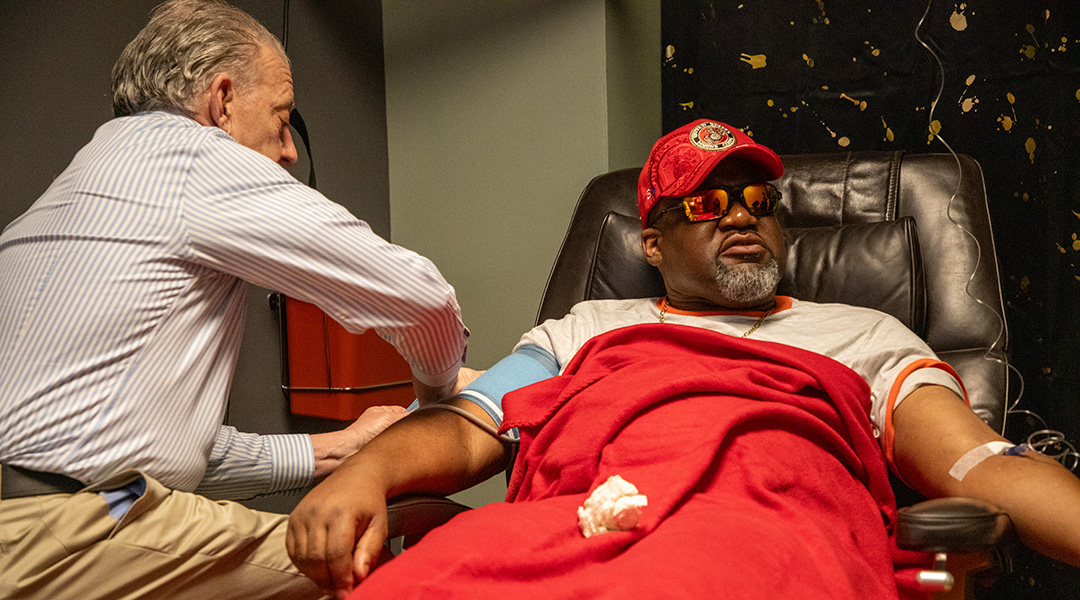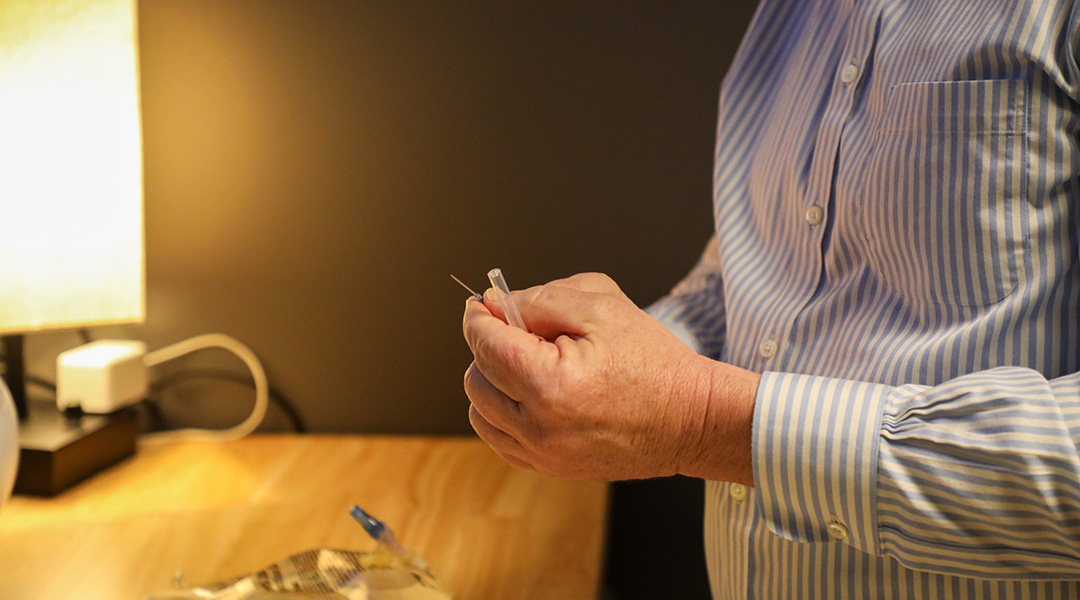Dr. Richard Bowen of the Columbia Ketamine Center administers ketamine to patient Klaus B. Smalls on Feb 27. (Photos by Catherine Burdine/Carolina News and Reporter)
Mandy Rich says ketamine changed her life.
Many are using the relatively new drug therapy to relieve chronic pain and alleviate severe depression, chronic pain and anxiety.
“It gave (my life) back to me because I was basically bedridden, couldn’t go too far without a wheelchair,” Rich said. “And now, look at me. I am able to go back to work.”
Rich had four surgeries after being attacked while working at a juvenile behavioral program in Alabama.
She now works at Dr. Richard Bowen’s Columbia Ketamine Clinic, which opened last summer in downtown Columbia, the second such clinic in recent months.
Ketamine is a general anesthetic administered intravenously, or by injecting a needle into a patient’s arm. Pain sessions last four hours, while depression sessions last for one.
“The nice thing about the intravenous route of administration is we can control it,” Bowen said. “And so, turn it off, boom, within 15 minutes, people are up walking and talking.”
Klaus B. Smalls visits the center every Tuesday. He gets intense migraines and cluster headaches, stemming from prior cancer and trigeminal neuralgia, which is facial nerve damage caused by surgery.
For him, the anesthetic is “well worth it.”
“I don’t feel the pain anymore, and that’s the best part about it,” Smalls said.
Weekly infusions keep the pain away.
During Rich’s second surgery, she developed complex regional pain syndrome. That condition sends pain signals to the brain even when a person is lightly touched.
Rich has been a patient of Bowen’s since 2017 at his Charleston clinic.
“I was in such a dark place,” Rich said. “And to actually have somebody to give you that life preserver and help you pull yourself up out of that dark place. And that’s exactly what Dr. Bowen and his staff there did.”
Bowen said many patients are happier after three to four infusion sessions.
Renee Wilder, another patient at the clinic, noticed a difference with her severe depression after her third session.
“It was like the lights came on,” she said. “… Everything came alive, and it was just wonderful to feel that again.”
Smalls said in addition to the pain relief benefits, ketamine also has had a positive effect on his mental health because of its ability to “deal with emotional stuff.”
During his infusions, he likes to listen to music that resonates. His favorite song is King of Sorrow by Sade.
“There’s a song that best describes how you feel right now, right here,” he said. “And when he does the infusion … it hits that nerve. You just want to turn into a big slush puppy.”
Many ketamine patients who have tried other pain medications say nothing works like ketamine.
Rich said she’s “probably been on just about all of them.”
“I think ketamine allows us to take a step back a little bit and to see it from a different angle that you can deal with, because sometimes we just can’t deal with what’s happening in our lives,” she said.
But Rich said she feels there is a stigma around ketamine and addiction, which can be addictive when used recreationally.
“It hurts my heart because I think a lot of people will not get the help that they need because of that stigma,” she said. “And that really hurts my heart because it’s so easy to hear what other people say, but you really need to experience it for yourself.”
Anna Kaso, who is involved with marketing at Columbia Ketamine, said the stigma is decreasing as people gain awareness.
“More and more people are starting to see what it truly is and what it does for people,” Kaso said.
Rich said ketamine is not an overnight fix, though, and that you have to trust in the process.
“I don’t want people to think it’s an overnight thing,” she said. “You haven’t gotten into this situation overnight, so you have to give yourself a little grace.”




